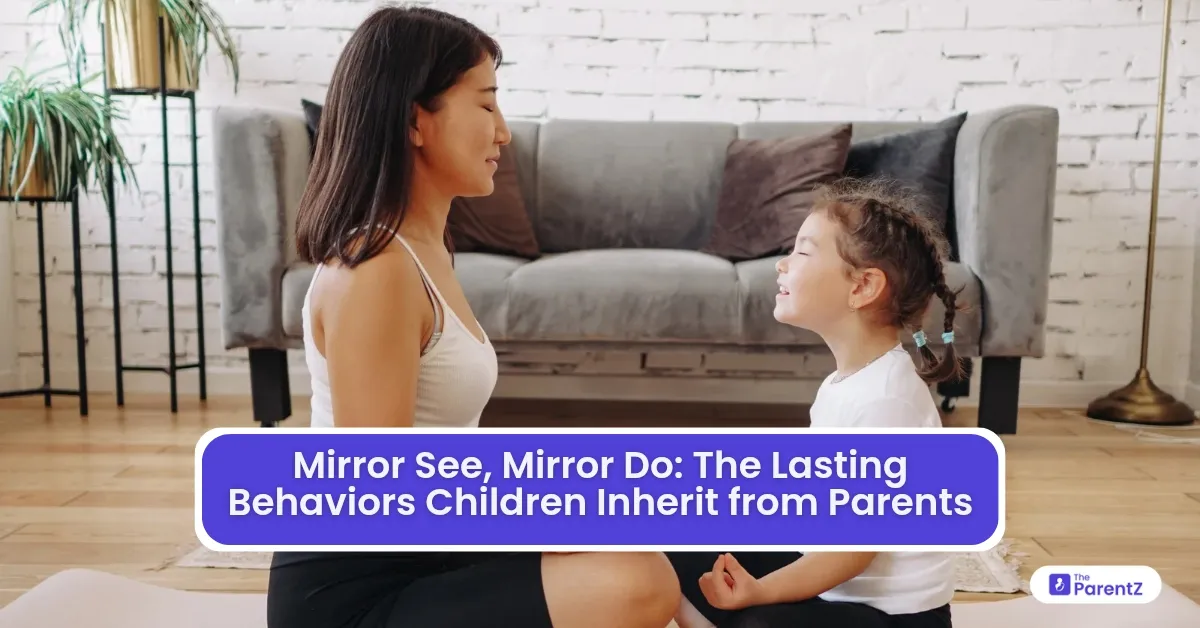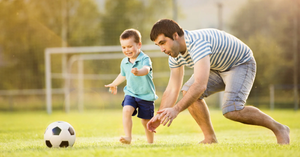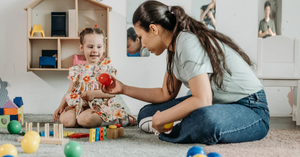Ever catch your child doing something that makes you think, "Wow, that's exactly what I do!"? As parents, we strive to instill certain values and habits in our children. We sign them up for sports, encourage them to be kind, and preach the importance of hard work. Yet, sometimes, despite our best efforts, they seem to inherit our own behaviors – the good, the bad, and the downright quirky. It's like looking into a mirror and seeing a reflection, not just of their physical features, but of our very own habits and tendencies. What are these behaviors, and how can we ensure we're passing on the best parts of ourselves?
Problem-Solving Skills
How we approach problems, big or small, becomes ingrained in our kids' minds. If you're the type to tackle challenges head-on, seeking solutions and asking for help when needed, your children are more likely to do the same.
Conversely, if you tend to avoid problems, complain about them without taking action, or become easily overwhelmed, your kids might adopt those same avoidance tactics. A child might observe that, "Mom always asks for help with her taxes, so it's okay for me to ask for help with my math homework." On the other hand, if a kid sees their parent constantly stressed and avoiding issues, they might think, "Problems are scary, I should just ignore them."
Stress Management
Kids are always watching how we handle stress. Do we take deep breaths, go for a walk, or talk to a friend? Or do we yell, shut down, or reach for unhealthy coping mechanisms like overeating or excessive screen time? Our reactions to stress become their blueprint for managing their own emotions.
If a child sees a parent meditating, they might be curious and see it as a positive way to deal with stress. If a parent is constantly yelling, the child might internalize that yelling is the appropriate response to triggers.
Respect for Others
Respect is taught not through lectures, but through our daily interactions. How we treat our spouse, our family members, the cashier at the grocery store, or the waiter at a restaurant – it all matters. Children always learn respect by witnessing it in action. If you're consistently kind, considerate, and empathetic, your kids are more likely to develop those qualities themselves.
Conversely, if you're rude, dismissive, or judgmental, your kids might mirror those behaviors, even if you're telling them to "be nice." A child may observe a parent being polite to the drive-through worker, teaching them manners. Alternatively, if a parent is constantly rude to customer service, the child might think that being mean to those workers is acceptable.
Time Management
Do you have a healthy work-life balance, or are you constantly stressed, overwhelmed, and sacrificing personal time? Kids learn about time management by watching how we prioritize our own lives. If you model effective planning, organization, and the importance of setting boundaries, your children are more likely to develop those skills themselves.
On the flip side, if you're constantly rushing, late, and juggling too many commitments, your kids might adopt those same chaotic habits, leading to increased stress and decreased productivity. If a child's parent schedules family time, they will associate spending time with family as a priority. If a child's parent is always working and doesn't prioritize them, then the child may think that it isn't important.
Learning Attitude
A parent's attitude toward learning significantly impacts their kids. Do you approach new things with excitement or skepticism? Are you open to learning from others, or do you believe you already know everything? If you model curiosity, a love of learning, and a willingness to embrace new challenges, your children are more likely to develop those qualities themselves.
However, if you're dismissive of new ideas, resistant to change, or afraid to try new things, your kids might adopt that same closed-minded attitude. If a child's parent is always interested in reading new books and watching documentaries, the child may associate learning as a fun and exciting activity. On the other hand, if a child's parent never reads anything, they might think that reading isn't something to invest time in.
Generosity and Gratitude
Do you express gratitude for the things you have, both big and small? Do you find ways to give back to your community and help others in need? Kids learn about generosity and gratitude by witnessing it in action. If you model kindness, compassion, and a willingness to share, your children are more likely to develop those qualities themselves.
Conversely, if you're constantly focused on what you don't have, unappreciative of what you do have, or unwilling to help others, your kids might adopt that same selfish attitude. If a parent volunteers in the community, the child may become selfless. If a parent is constantly complaining about others and hoarding wealth, the child may develop an attitude of entitlement.
Sense of Humor
Our lives are too short to take everything so seriously all the time. Do you have a sense of humor? Are you able to laugh at yourself and find joy in everyday moments? Kids learn the importance of humor and levity by watching how we respond to life's ups and downs.
If you can laugh at your own mistakes and find humor in stressful situations, your children are more likely to develop a positive outlook and a resilient spirit. If a child's parent finds humor in tough situations, they will learn to laugh through the pain. If a parent never laughs, then their child might become pessimistic.
Responsibility
Following through on commitments is an important lesson to pass on to our kids. Are you keeping promises and meeting deadlines? Or are you forgetting important dates and not owning up to your mistakes? From the kid's perspective, "My mom never admits that she's wrong, and I can also just blame other people when I mess up."
Self-Care and Boundaries
Kids learn how to prioritize themselves from us, setting boundaries in our family is an important topic that is very important. We are constantly setting examples for our kids; setting those for us is just as important. If we don't know how to protect ourselves, how will our kids? If they see us taking care of ourselves, they will learn.
Digital Habits
In today's world, our kids are watching how we interact with technology. Are we constantly glued to our phones, mindlessly scrolling through social media? Or do we use technology with intention, setting boundaries and prioritizing real-life interactions? Our digital habits become the norm.
If a child sees a parent constantly checking their phone, even during dinner or conversations, they might think it's acceptable to do the same. On the other hand, if they see a parent putting their phone away to be present and engaged, they'll learn the importance of balancing technology with real-life connections. From a kid's perspective, "If Mom is always on her phone, why can't I be?"
The Value of Money
Our financial habits are always being examined by kids. Do we constantly order junk food and buy that new dress, or do we constantly make grocery store trips and put most of it in savings? Are we acting smart and saving for college, or are we buying useless junk?
Children absorb our anxiety about finances, our spending priorities, and our attitudes toward material possessions through thousands of small moments—from overheard conversations about bills to observations about what purchases seem to bring us joy or relief.
The Good News: It's Never Too Late to Change
If you recognize some less-than-ideal habits in yourself, don't despair. The beautiful thing about parenting is that every day is a new opportunity to model the behaviors you want to see in your children. It's not about being perfect, it's about being aware and making a conscious effort to improve.
Conclusion
Our children are always watching and learning, absorbing our behaviors like sponges. By becoming more aware of the messages we're sending, both consciously and unconsciously, we can harness the power of example to shape our children into the compassionate, responsible, and resilient individuals we hope they will become. Remember, parenting isn't just about telling our kids what to do; it's about showing them how to live.








Be the first one to comment on this story.